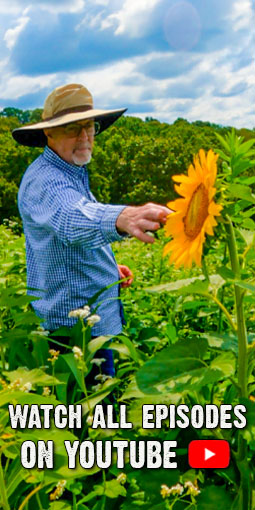What forage should I use in areas with low quality soil?
Filed under: Food Plots
Joseph,
The soils here at The Proving Grounds are very poor! I’ve had much success at improving the soils using a rotation of Eagle Seed forage soybeans and Broadside.
Soybeans are legumes (take nitrogen from the air and place it in the soil). Eagle’s forage soybeans take much longer to mature than most so they are actually converting nitrogen from the air and releasing it in the soil for more weeks/months throughout the year! I broadcast the Broadside blend on top the standing soybeans about 45 to 60 days before a frost.
Broadside includes a radish, forage wheat, two types of brassicas, etc. These species do a great job of extracting nutrients from the soil and bring them back to the surface. Deer either consume these nutrients or the plants die and the nutrients are placed in the top portion of the soil’s profile and available for the next crop to use! This system of something growing throughout the entire growing season and the forage decomposing on the soil’s surface is how the fertile soils of the great prairie were built!
I’ve used this rotation for years haven’t needed to add any fertilizer or lime for years.
Eagle’s soybeans are Roundup Ready so it’s easy to control the weeds. Just like the great prairie you can use a prescribed fire to remove the plant duff during the spring and prepare the seedbed for replanting. It will be necessary to use some technique to insure the soil is exposed enough to allow for good seed to soil contact.
Many NRCS offices (one in almost every county) rent no till drills and some rent tractors! These are amazing inexpensive – usually $10 per acre or less!
You can easily search the http://www.GrowingDeer.com site for more information about this technique!
Enjoy creation,
grant
November 16, 2015



